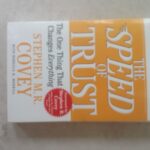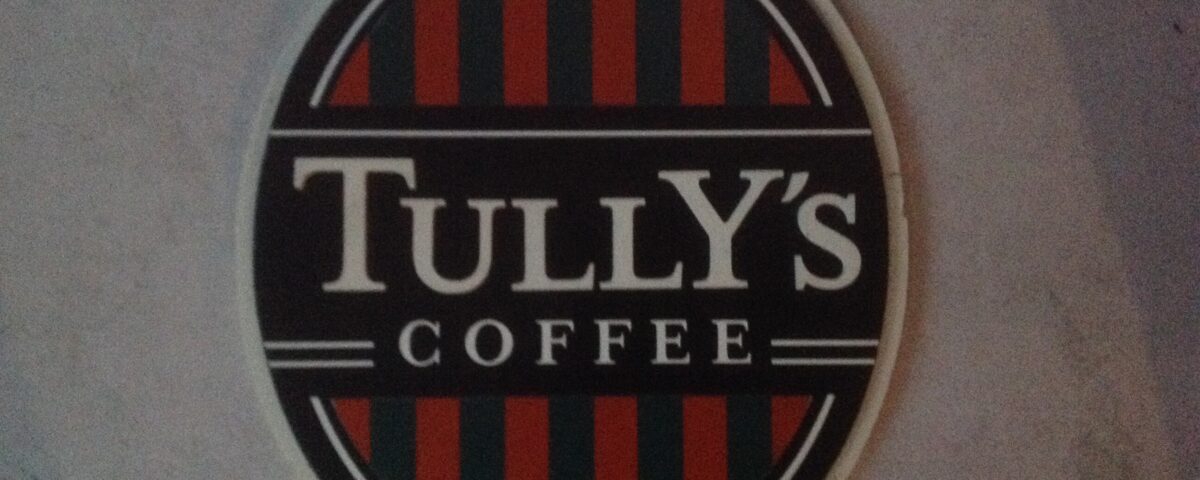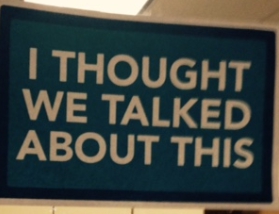
What Makes a Great Place to Work [Case Studies from Tully’s and The Bon Marche]
February 27, 2015
Personal Growth Through Networking
March 1, 2015HOW DO YOU MEASURE THE IMPACT OF A COLLABORATIVE WORK ENVIRONMENT?
My favorite business truth is “What you measure is what you get”. No matter how you got into business, once you are there and challenged with creating a profit or producing a level of production, measuring results becomes the fundamental management tool for success.
In most cases managers create a “Dash Board” report that gives frequent reliable information that everyone in the organization becomes accountable for, on how the operation is performing. Having this basic business activity as the indicator of future success, management’s role is to create a working environment that supports those behaviors that keep improving this “Dash Board “ report.
This is where the conversation about a “working culture” becomes important – does a collaborative culture out-perform a competitive culture? There it is, the key dilemma of this blog, and, I would suggest, of our current working environments. As the Baby Boomers leave the work force – does the concept of Best Culture change from competition environment to collaboration environment?
This is something that has been studied and written about extensively. I would contend that when Marcus Buckingham and Curt Coffman published the book “FIRST BREAK ALL THE RULES” based on the Gallup research, the overwhelming answer to this dilemma was answered. Collaboration wins in building a sustainable high performance culture. My first suggestion is if you have not read this book, either get a copy online or Google the title – there are a lot of open source elements that you can access and I guarantee that it is worth the time and effort.
The way you measure the impact of creating a collaborative work culture would start with having the following two surveys taken, so you have base line scores to measure the attitudes about the current work culture. When you change your manager’s ability to understand how a collaborative culture is built, you will have the future work culture surveys scores, and be able to map corresponding changes in your “Dash Board” scores. You can view this as your own culture research project.
The first survey is what I adapted from the “FIRST BREAK ALL THE RULES” effort. When I was named the CEO of Tully’s Coffee, I did exactly what I am suggesting you should do – I had all employees take the survey below. I did separate the surveys by divisions, but I did not separate by managers as I did not want to put manager competition into the mix. I also held a meeting with all managers to discuss the effort prior to the launching of the survey. As you read through the survey be aware there no questions involved that a focused and empathetic manager could not find a way to improve upon, if they wanted to raise their scores.
Also notice how basic these questions are—this is not a complicated or hard to understand concept, but high scores almost guarantee a culture that produces: High Levels of Productivity, Improved levels of Profitability, Employee Retention, and finally, Improved Customer Satisfaction.
TULLY’S EMPLOYEE SURVEY
Your manager is defined as the person responsible for conducting your performance review discussion, even if you have been reporting to that person for only a short time. This refers to your current store manager. For store managers, this refers to your current district manager (or regional operations manager). If you work in more than one store, please respond to the questions based on your primary store only.
Disagree Neither Strongly Agree
YOUR OVERALL SATISFACTION
- Considering everything, I enjoy working at Tully’s…………
YOUR STORE MANAGER, AND JOB
- I know what is expected of me at work…………
- I have the materials and equipment I need to do my work right……..
- At work, I have the opportunity to do what I do best every day……….
- In the last seven days, I have received recognition or praise for doing good work…
- My manager, or someone at work, seems to care about me as a person
- There is someone at work who encourages my development………..
- At work, my opinions seem to count……………………………………………………
- The mission or purpose of my company makes me feel my job is important…
- My co-workers are committed to doing quality work………………………..
- I have a good friend at work…………………………………………………………………
- In the last six months, someone at work has talked to me about my progress……..
- This last year, I have had the opportunities at work to learn and grow…………
- We have effective communication within my store………………………….
- My manager provides coaching and effective feedback on my performance…………
- I am comfortable approaching my manager with my problems or questions……………
- I would not hesitate to recommend Tully’s to a friend seeking employment (i.e., when you know someone is looking for a job, you don’t hesitate to recommend Tully’s)……………..
- Senior management is open and honest in communication……………
- Senior management communicates a clear picture of the direction Tully’s is heading………….
- Overall, how we communicate at Tully’s allows me to efficiently do my work…………
- I have the ability to use my vacation and/or holidays on a timely basis……….
As you can see from the questions, raising these scores should be a no-brainer…
The 2nd survey I would suggest comes from my Blog post titled ;
CREATING A COLLABORATIVE WORKING ENVIRONMENT
This survey is based on the scores of your managers and would be administrated 1st – prior to any formal training effort – and then I would suggest once every 6 months to keep the culture conversation fresh in everyone’s mind. These question are part of the formal collaborative training.
1 IT STARTS WITH CLEAR VISION AND EXPECTATIONS
- How sure are you, that your employees understand what is expected of them in a variety of situations? Do you believe that everyone on your team understands what success looks like? And as a group has solidarity of belief for both the vision as well as the plan on how to get there?
[Score your confidence 1-10 with 10 being high]
2 UNDERSTANDING HOW TO BUILD TRUST AND SHARED VALUES
- What is the level of mutual trust with your team? Do all of your team members share the same values?
[Score your team’s mutual trust level and shared values 1-10 with 10 being high]
3 THE ART OF MAKING DECISIONS
- How well do your team members understand how decisions are made under your leadership? How much input do your team members have in the decision process?
[Score your team’s trust in your decision process 1-10 with 10 being high]
4 JOB DESCRIPTIONS – A FORGOTTEN ASSET
- Do you regularly [at least 1 time per year] discuss your team members’ Job Descriptions?
[Score your effective use of Job Descriptions in managing you employees- 1-10 with 10 being high]
5 THE USE OF REVIEWS
- How would you rate your ability to have the review process be viewed as a worth while experience for both you and your employees?
[Score your team’s trust in the annual review process 1-10 with 10 being high]
6 DESIGNING AN EMPLOYEE REWARD SYSTEM
- How would you rate your employee reward/recognition efforts?
[Score your teams reward/recognition system 1-10 with 1 being very individual competition and 10 being totally group focused]
7 DEALING WITH POOR PERFORMANCE EMPLOYEES
- How comfortable are you handling the poor performing employee?
[Score your level of confidence in handling poor performance employees 1-10 with 10 being high]
8 DEALING WITH CONFLICT
- How comfortable are you at managing conflict in a way that improves performance?
[Score your level of confidence in handling internal conflict 1-10 with 10 being high]
9 MANAGING ORGANIZATIONAL CHANGE
- How comfortable are you with organizational change? Do you have a clear understanding as to what you need to do to manage organizational change?
[Score your level of confidence in handling Organizational Change 1-10 with 10 being high]
10 HOW TO BE CREATIVE
- How comfortable are you at finding ways to be creative? Do you have a system for fostering your team’s creativity?
[Score your level of confidence in inspiring you teams creativity 1-10 with 10 being high]
11 BUILDING A SOCIAL ENVIRONMENT
- How well do you engage individuals and small groups in Conversation that allows for equal exchange of information?
- How comfortable are you engaging, considering the time pressures of your workday?
[Score your level of comfort with just being socially engaged 1-10, with 10 being very good]
12 HOW TO USE FEEDBACK [INTERNAL AND EXTERNAL]
- Does your management style have a feedback component? Is this feedback component a regular part of your behaviors?
[[Score your level of comfort with having a feedback system and you comfort in receiving the feedback 1-10, with 10 being very comfortable]
13 PERSONAL AND PROFESSIONAL GROWTH THROUGH NETWORKING
- How well do you Network? Is networking a part of your self improvement strategy?
[Score your level of Networking as a consistent personal growth strategy 1-10 with 10 being very high]
14 HOW TO MEASURE PERFORMANCE IN A COLLABORATIVE CULTURE
- Do you have a consistent “Dash Board Report” that gives a tangible score to measure your team’s progress?
- Does this “Dash Board Report” have a high level of transparency and trust that the employees can have an impact on its results?
[Score your level of consistency at positively using this Dash Board report to manage your team 1-10 with 10 being very high]
15 BUILDING A COLLABORATIVE WORKING ENVIRONMENT: YOUR PERSONAL LEADERSHIP/MANAGEMENT SCORE
Add up your scores and look at the level of active behaviors you have adopted in creating a Collaborative Working Environment:
90%=126 80%=112 75%=105 70%= 98 60%= 84 50%=70
Now look at your 5 -7 lowest scores and ask yourself: What activities would I like to learn that would have a significant positive impact on improving my team’s collaboration and overall productivity?
Next Steps: You now have two surveys that, when used consistently as a progress report for your management team and employees, and in conjunction with your financial / production “DASH Board” reports, will provide the answer to the management dilemma of defining “What is the best culture for your organization –one built on competition, or one built on collaboration?”.
I started this post with my favorite Business/organizational truth:
WHAT YOU MEASURE IS WHAT YOU GET.





